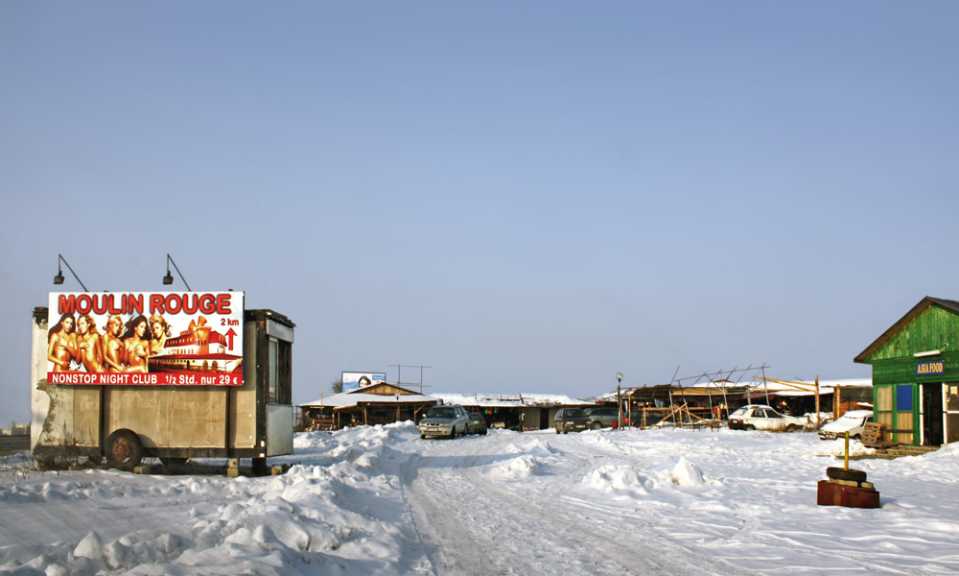
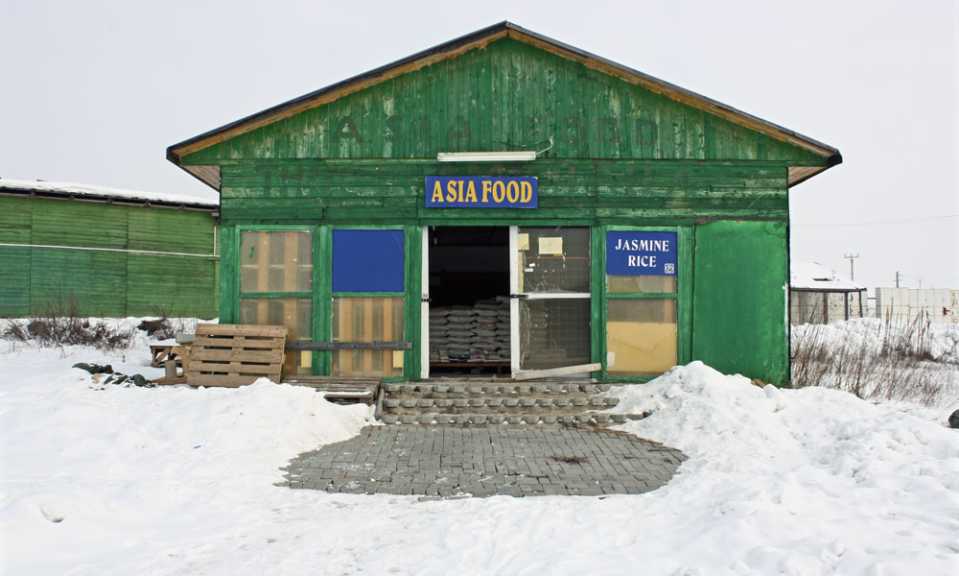
Map of Czech-Austrian border at Chvalovice, 1989-2004
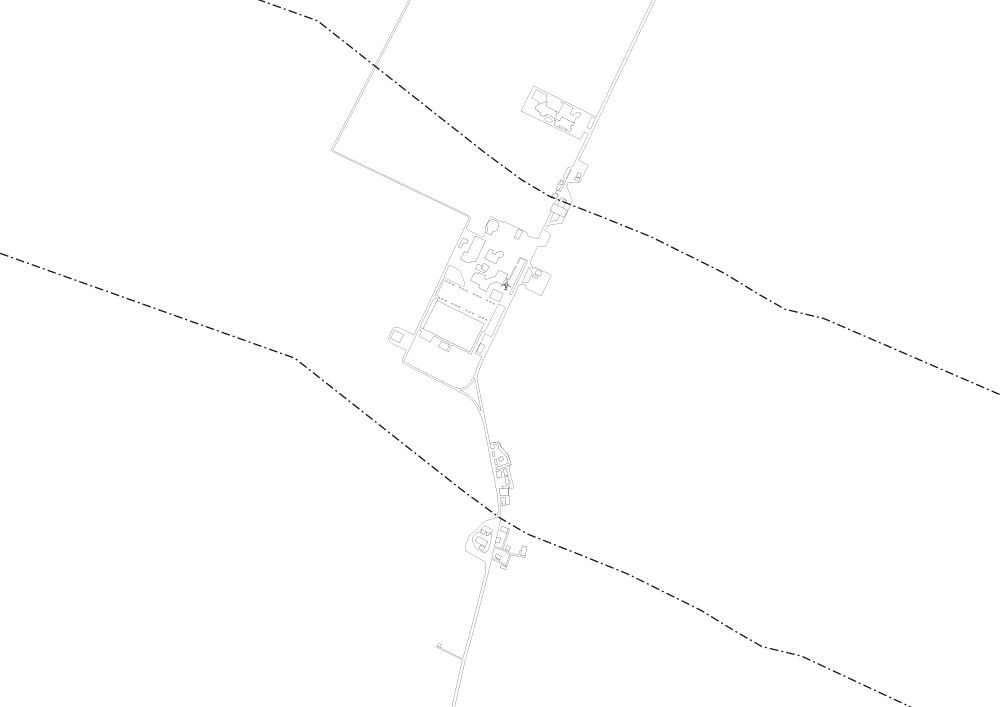
Map of Czech-Austrian border at Chvalovice, 1946-1989
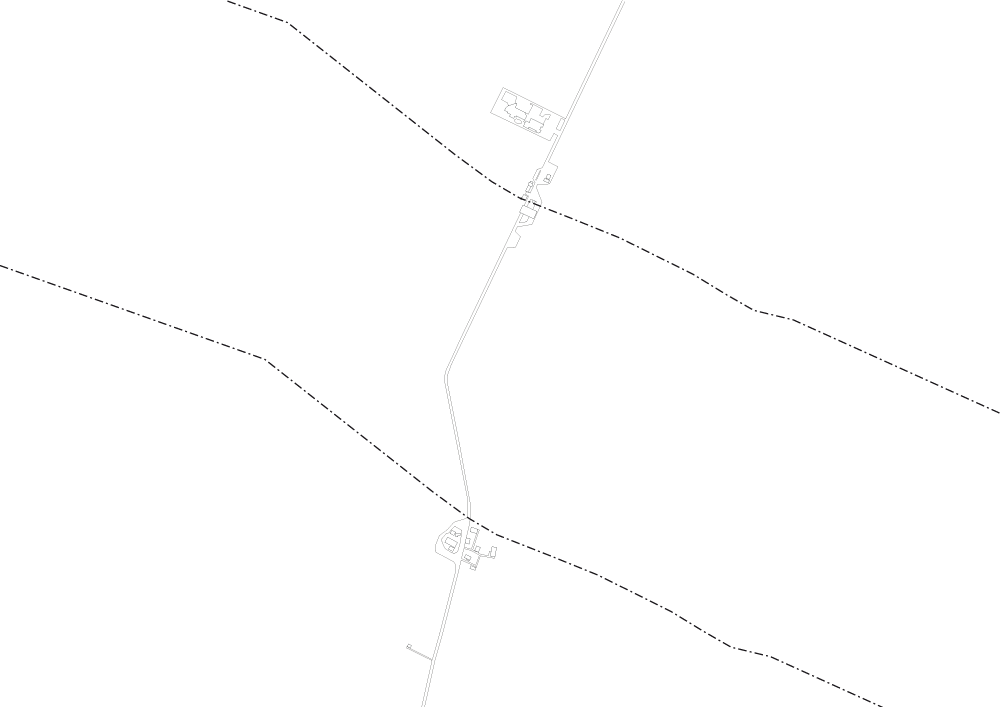
Veteran vans used as storage spaces
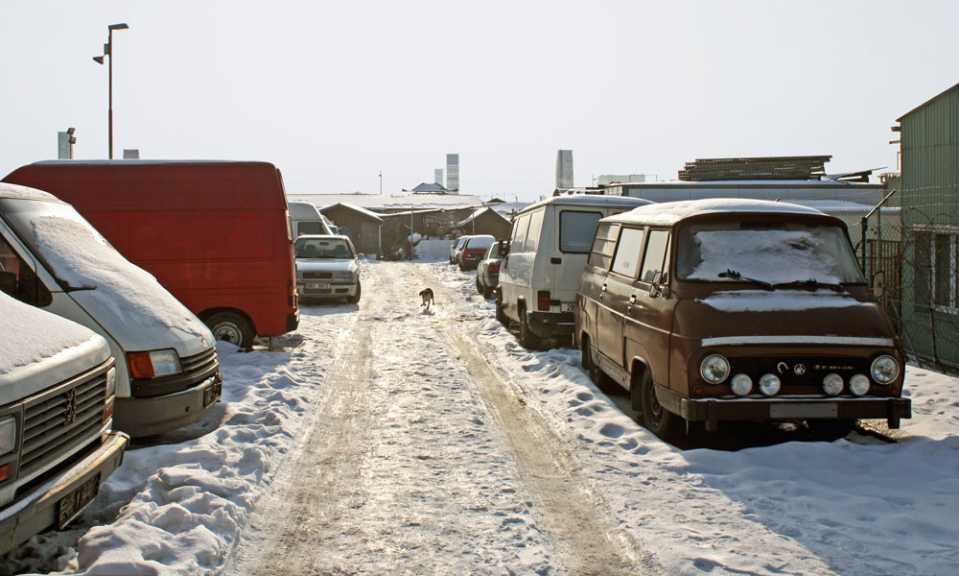
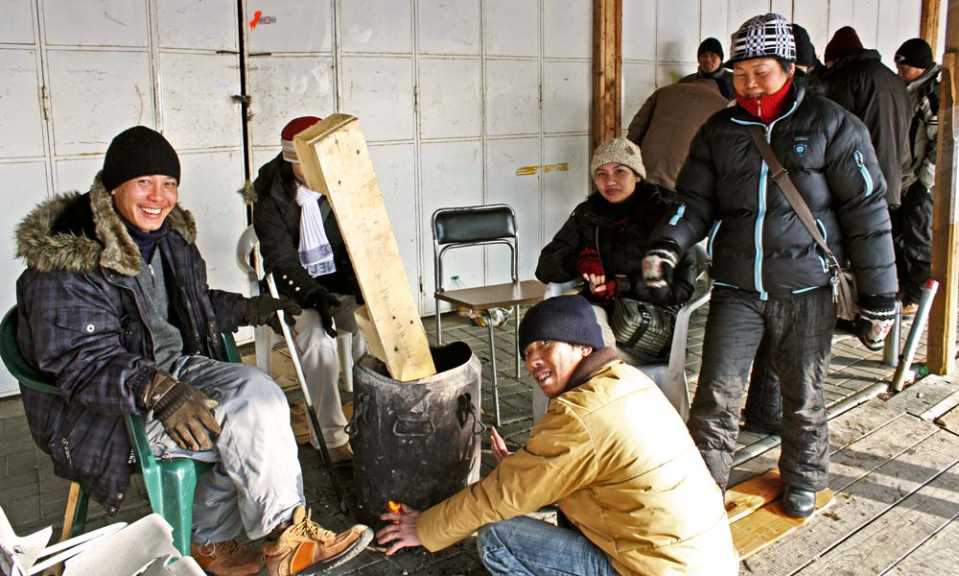
Workers at the Vietnamese markets
TV lounge at the Vietnamese market
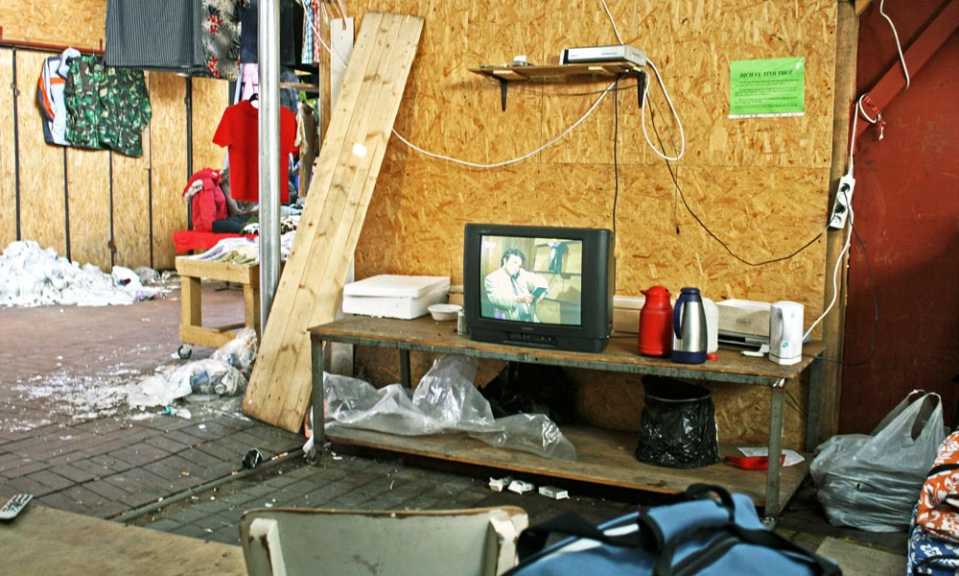
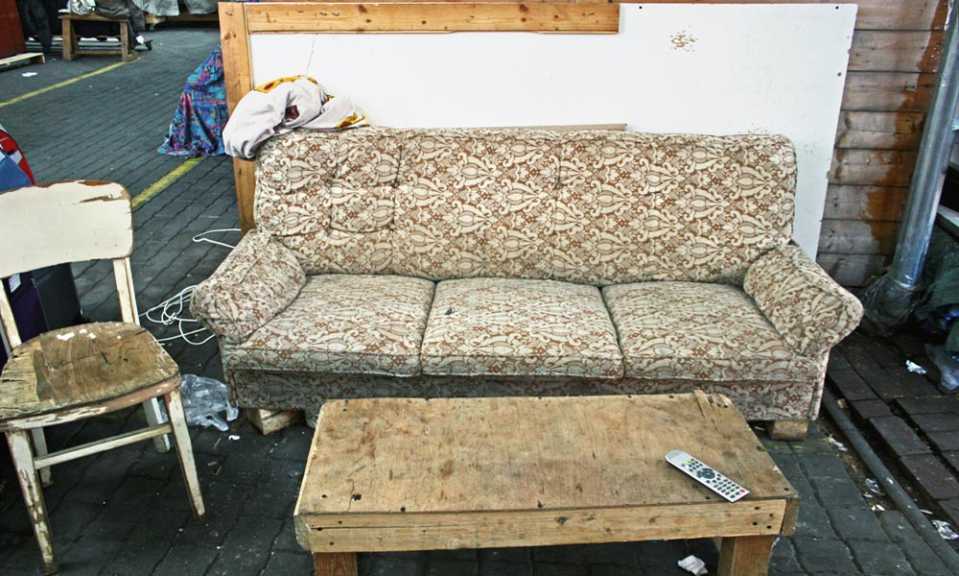
Diagram of border crossing modalities: 1946-1989, 1989-2004, 2004-
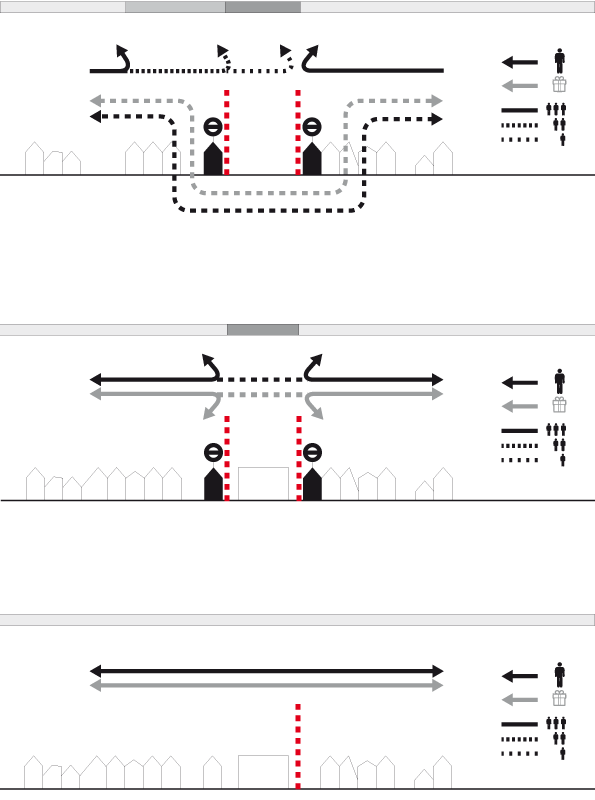
Roadside trade
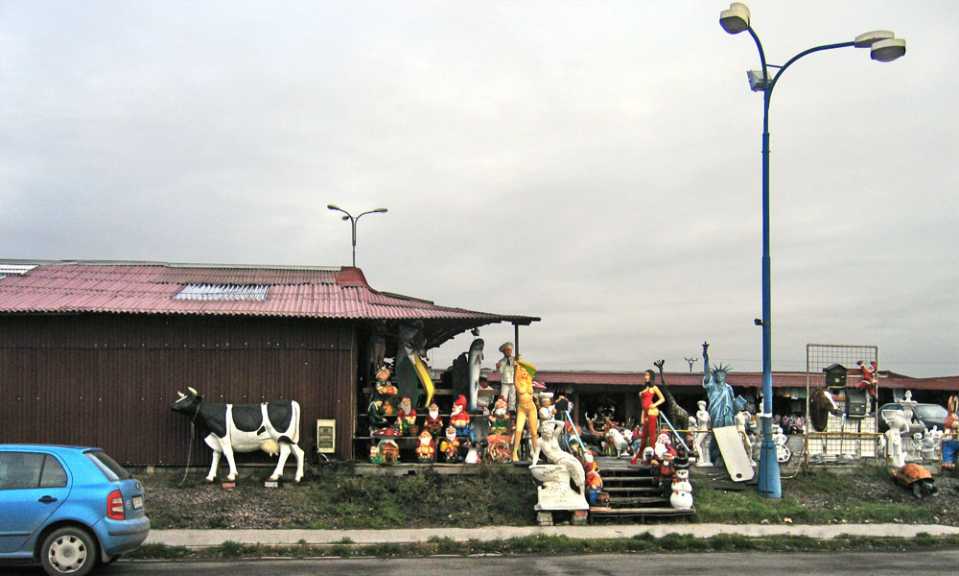
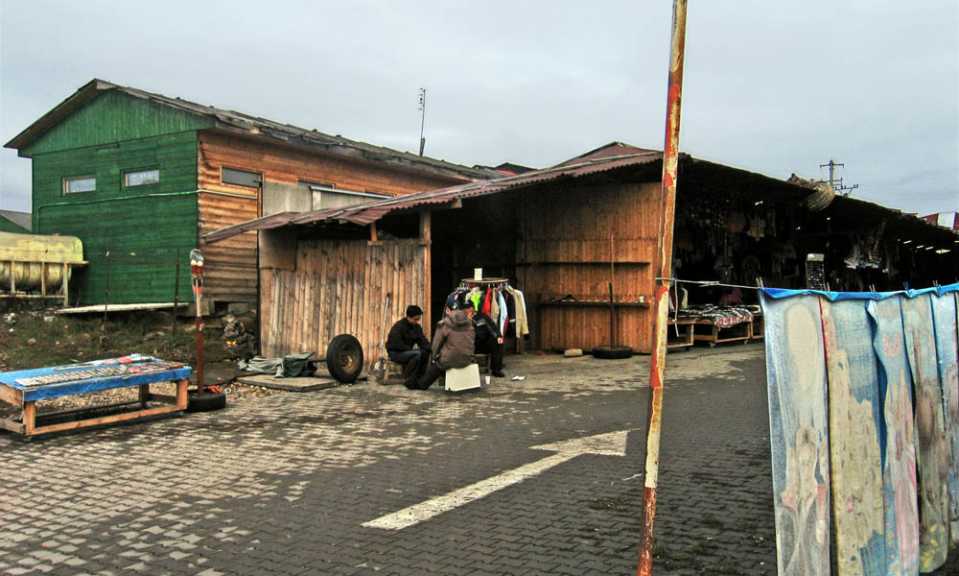
Migration of trade activities
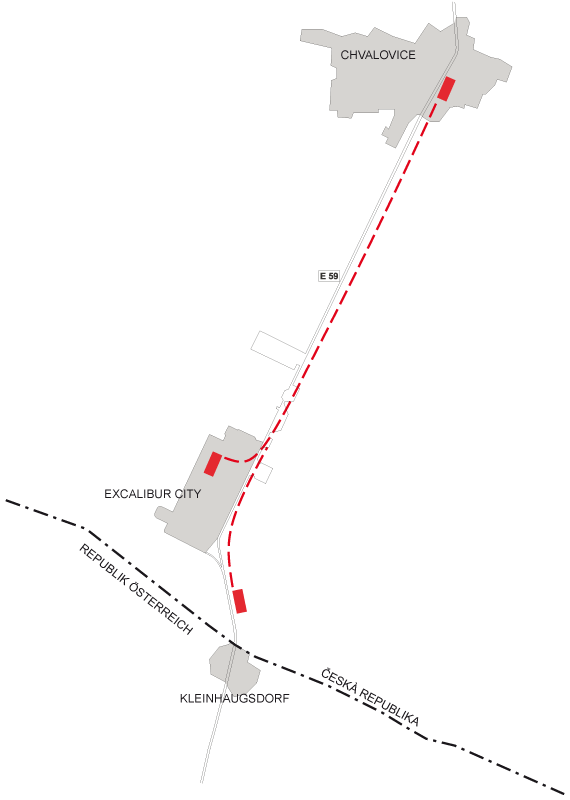
Excalibur City
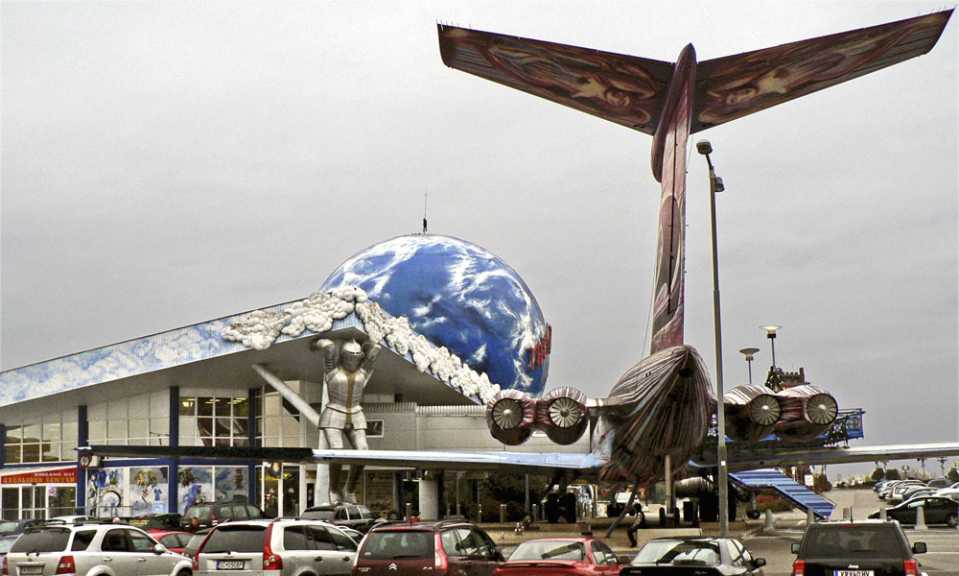
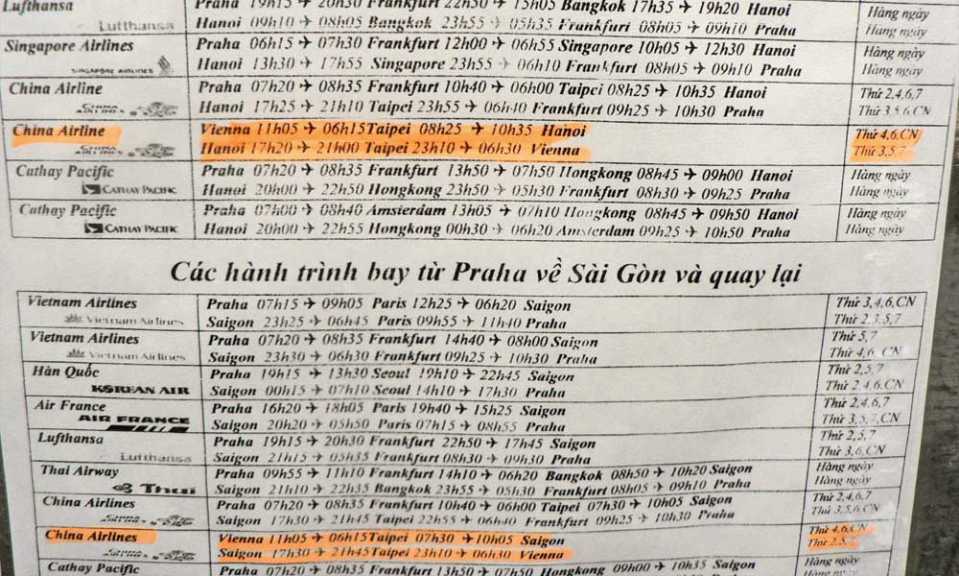
Until the Czech Republic joined the European Union in 2004, the Vietnamese trade activities flourished in Chvalovice, but EU membership and anti-piracy laws complicated the sale of counterfeit products such as DVDs and Software, back then the major income for the salesmen and -women. Increasing trans-European crime prevention networks enabled crackdowns on counterfeit products and led to the migration of those economic activities into the formerly restricted military area. This spatial relocation mainly concerned two areas; on the one hand a plot on the premises of “Excalibur City”, on the other hand a strip of empty land next to the highway right across the Austrian border.
The settlement inside “Excalibur City” is characterized by its originally ordered grid of approximately 120 market stands, subordinated to the plot’s outline and certain special functions, such as a Pagoda used as a stage and a communal area in the centre of the parcel. Little by little, the separate stands were covered up with plexiglass and corrugated sheet iron to form a single roof connecting the stands. At the same time the stands started expanding, gaining retail and storage area. Outside the plot the market started to spread with disused shipping containers and simple huts, containing kitchen, recreation or storage areas. A uniform facade, matching “Excalibur City's” stage-set-like qualities, was erected out of sheetrock and signals of “Asia Bazar” with some Chinese characters written next to it. Glued to the facade are price lists comparing different flight companies and their prices to Hanoi, and the former Diner-Grill double-decker bus from London has been converted into a wok-take-away. Permanently parked and mostly wrecked minibuses with blind windows are used as a storage area and claim access roads as private space. Regular parking for everyday use is located at the outline of the plot.
Since the European Union passed a new anti-piracy law in 2005, the circulation of counterfeit media products, once the principal source of income, seems to have moved into online platforms. Only the roadside stalls still sell these goods in separate booths, not clearly assigned to one or another stall and, opposed to the regular stalls, not labelled with the owner’s name. Since the Czech Republic joined the Schengen-Region in 2007 the border seems to be disappearing, border controls across Europe have been reduced and Schengen seems to be this vast territory of interconnected high density areas. Despite these obvious disappearance and reinterpretation of national borders, the markets around “Excalibur City” are open all year, and the stall holders spend their days around the campfire playing Xiang Qi, a popular Vietnamese board game.
Klaus Molterer
Joachim Hackl
read more...
read more...
read more...
read more...
read more...
read more...
read more...
read more...
read more...
read more...
read more...
read more...
read more...
read more...